
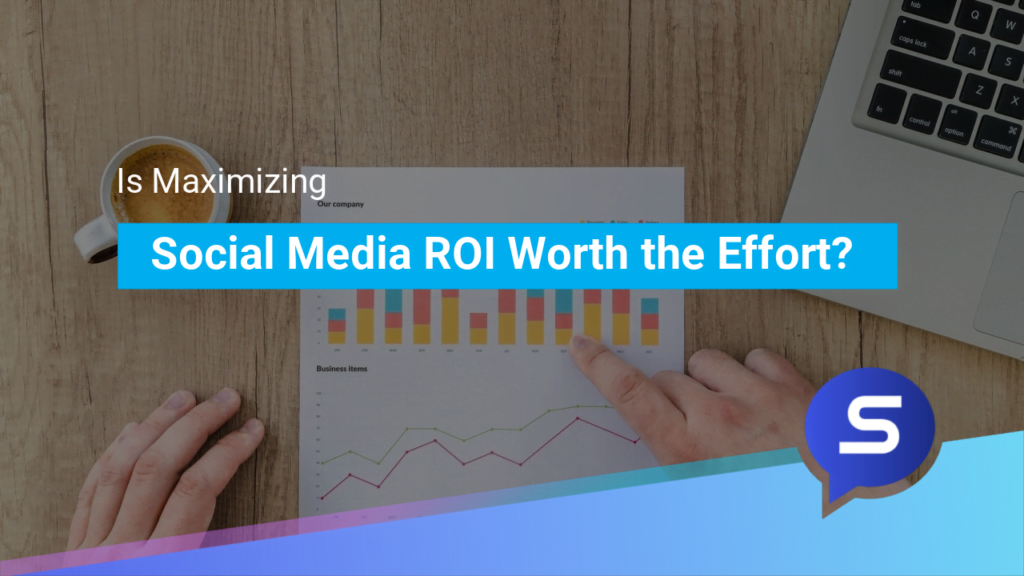
Is achieving a stellar social media ROI worth the budget, time and effort you’re spending on your e-commerce business? Are you keeping track of the metrics necessary so you can measure what’s working and what’s not in your social media marketing?
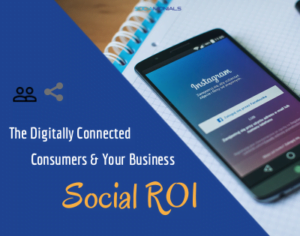 The digital age has made the world smaller by making people globally connected through online social circles. Whether you like it or not, today’s consumers are more inquiring, information-seeking and always looking for consumer proof, such as product reviews, before deciding to purchase. They like sharing their opinions and experience on various products and e-commerce sites regardless of whether it’s positive or negative. Through all this online social sharing, there’s much information that e-commerce businesses can tap into and use to guide them to success.
The digital age has made the world smaller by making people globally connected through online social circles. Whether you like it or not, today’s consumers are more inquiring, information-seeking and always looking for consumer proof, such as product reviews, before deciding to purchase. They like sharing their opinions and experience on various products and e-commerce sites regardless of whether it’s positive or negative. Through all this online social sharing, there’s much information that e-commerce businesses can tap into and use to guide them to success.
If we want our online businesses to grow, it should be the online entrepreneur’s reality to be able to turn social media efforts into actual customer[2] sales and conversion. You need to be able to point out which social shares finally end up in a purchase and which don’t. When you do so, you’ll be able to bring a huge amount of savings to your marketing budget and ultimately in your e-commerce business, by spending only in those areas that you know will bring you a reasonable amount of ROI. You can dump the ones that aren’t giving you the results you want and focus all your resources on social media marketing efforts that make your customers happy and your business grow.
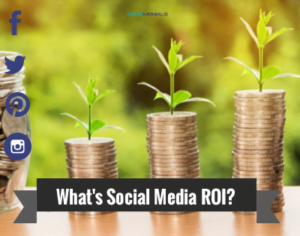 Social media ROI is all about numbers. It’s the proportion of whatever metric you’re measuring that comes back to you, and hopefully signifies that your social marketing is paying off. For example, if you spend $1k on a Facebook[3] contest and it results in 100 new customers purchasing enough for an average profit margin of $100 per custom, then you’ve gained 1000% ROI. Nicely done! However, if the social media contest resulted in only 10 new customers, then you’ve barely broken even. You would need to find out where you fell short in the campaign.
Social media ROI is all about numbers. It’s the proportion of whatever metric you’re measuring that comes back to you, and hopefully signifies that your social marketing is paying off. For example, if you spend $1k on a Facebook[3] contest and it results in 100 new customers purchasing enough for an average profit margin of $100 per custom, then you’ve gained 1000% ROI. Nicely done! However, if the social media contest resulted in only 10 new customers, then you’ve barely broken even. You would need to find out where you fell short in the campaign.
Generally speaking, we applied the formula:
Profit from social contest/Amount of investment on social contest x 100 = Your Social ROI in %
However, this is a very simplistic scenario for demonstration purposes only. Running a Facebook contest involves counting a number of social signals such as likes, shares, and the traffic that brought the entrants to the contest site itself. Keeping track of these metrics may appear complex, only if you perform it manually. But we now have access to the most sensible tech that will help us do the monitoring and accounting, so we have a good plain number figure of social ROI to look into.
Remember, if you’re keeping track of the important metrics for your business before you initiate a social campaign, you will surely succeed. Your social ROI can always point you to what’s the next good move for your business to grow.
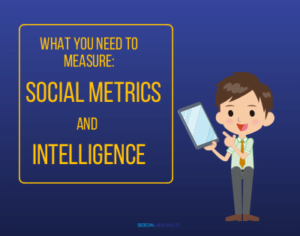 By now, you should have realized that your social media ROI explicitly states the value your e-commerce store gained or lost in your social media marketing efforts. Your social media campaigns then become measurable and are expected to have specific outcomes. What are the social metrics and intelligence that you need to know to be able to compute your social ROI? It’s not really that complicated. It usually refers to everything that you spent, whether directly or measured in time and other resources, in exchange for a desired outcome.
By now, you should have realized that your social media ROI explicitly states the value your e-commerce store gained or lost in your social media marketing efforts. Your social media campaigns then become measurable and are expected to have specific outcomes. What are the social metrics and intelligence that you need to know to be able to compute your social ROI? It’s not really that complicated. It usually refers to everything that you spent, whether directly or measured in time and other resources, in exchange for a desired outcome.
Outcomes are typically sales that resulted from social media, but it can also be the number of leads generated. It’s actually up to you, as a business, to create a clearly defined goal on what metrics you want to optimize from social media. This process is important as it will be the basis of everything else that you will do and measure in your social marketing. Take time to come up with a concise goal that you want to achieve for your business using social media marketing.
When you’re done, you can proceed to defining the metrics that you need to track to be able to measure your social ROI. According to experts, the top metrics that relate to social media success and therefore, you need to apply in your own business are:
It’s the number of people who can see your social media campaigns. It could refer to the number of your Facebook fans, Twitter followers or LinkedIn group members. The higher your audience reach, the more number of people can read your content, the more opportunities you have to increase your social ROI.
There’s no one way to define what audience engagement is. Whatever definition you give, it boils down to how your audience responds to your social media campaigns. Do they engage with your content through likes, shares, retweets, comments, clicks or favorites? Do they do what you ask them to do such as visiting a website, signing-up to an opt-in form?
When there’s good audience engagement, it demonstrates audience trust in your brand. It shows that your followers are actively involved in your social content. When they are, they’re more likely to become paying customers.
When the number of your e-commerce site visitors increases as a result of your social media campaigns, it partly indicates that you’re getting higher ROI from social marketing. Your social efforts are converting to a spike in your website traffic. And it’s actually one good goal to aim for in social.
The number of sign-ups to a marketing campaign or free trial, that eventually converts to being a paid customer, is a great metric to track when it comes to finding out what social campaigns work with your audience. Being able to determine what works can lead to better social ROI’s for your business, which can be scaled up for higher revenues.
We all know that lead generation is critical to every business, as being able to pitch or close a sale. That is true only if the right leads are generated. Social media marketing is very effective in capturing targeted leads. Through social content that appeals only to its target audience, social marketing enables businesses to generate the right leads. And through successful social campaigns, the volume of qualified leads also increases.
Of course, it’s imperative to keep a close eye on the revenue generated from your social marketing efforts. The ability to pinpoint exactly which social network or engagement or social posts caused that effect is a goldmine of information that helps generate higher social ROI.
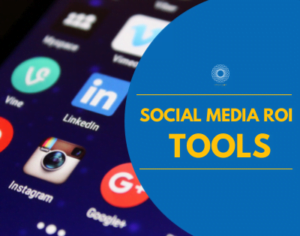 For you to understand how social ROI impacts your business, you’ll need to get started measuring it. Instead of timing your social posts for the highest engagement, you’d want to time it for the optimal revenue so your business can enjoy a higher ROI. This is when you begin to look for tools that will help you track your social posts, subscriber actions, influencer activities, analyze data and provide you with analytics reports.
For you to understand how social ROI impacts your business, you’ll need to get started measuring it. Instead of timing your social posts for the highest engagement, you’d want to time it for the optimal revenue so your business can enjoy a higher ROI. This is when you begin to look for tools that will help you track your social posts, subscriber actions, influencer activities, analyze data and provide you with analytics reports.
Google Analytics[1] is a free tool that you can use to track activities that are sourced out from your social media campaigns, such as website traffic to your e-commerce site and sign-ups to your opt-in pages. But your data would be incomplete as it won’t tell you which specific social activities resulted to sales and other revenue. And so, your social ROI data would be partial.
There are a number of popular paid softwares that you can choose to try, to help measure your social media ROI across various social channels. However, if you’re an e-commerce business or B2B, know that this would be another separate step that you need to incorporate with tracking of your other marketing campaigns such as referral marketing, incentivized sharing and social CRM.
There’s one robust social media marketing software that will help you all the way to not only measure social ROI, but achieve a higher one, by helping you execute your social media marketing using ROI-optimized publishing times, giving you access to revenue-generating campaigns and a powerful social CRM. You only need to use one tool, and everything about your social media marketing and social ROI are taken care of. Its revenue tracking allows you to report on ROI on your social activities. You can learn about it at www.sociamonials.com.
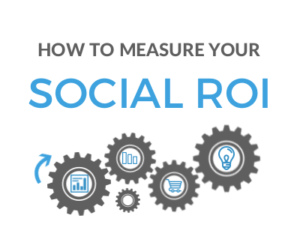
When you’re using the right tool for social media marketing, you’re just two steps away to measuring your social ROI. These are:
Know the outcome that you would expect from your social media campaign. More followers? More sales? More site visitors?
Plan, design and create your social campaigns. Determine the metrics that you want to track for your ROI. Track your metrics.
You’ve eliminated redundant steps that you would have done manually otherwise, such as:
When you’ve done those two steps, you’ll end up with a suite of analytics that you can use to evaluate your winning social campaigns, based on the metrics that you’ve initially determined to use. Now that you have real-time data in your hands, you have the information to decide on your next move, which is based on doing more of what worked and halting that which didn’t.
By using a software like Sociamonials, you’ll gain access to an overview report that will help you see at a glance which networks, media types, employees, campaign types, etc. are driving KPI’s like revenue, leads, visits and engagement. You’re able to do this because it’s a state-of-the-art tool for all of your social programs designed to give you a complete reporting of your social media ROI.
You’ve eliminated steps that are based on inaccurate methods of measurements, and leveraged on technology-based business tracking that uses real-time tracking. You’ve shortened the process of data analysis and reporting, by letting the software be involved in your social marketing from creating your campaigns, scheduling, tracking, analyzing and reporting.
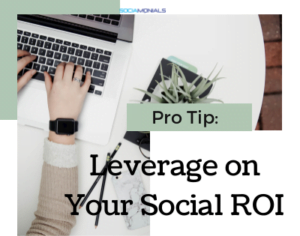
If you want to gain social intelligence to improve how you do your business, you may want to consider using a social media marketing software that’s built just for that purpose, like Sociamonials. With a focus on helping businesses gain higher ROI from social media, Sociamonials is designed to help the entrepreneur run her business with ease by allowing her to focus on what matters most, the direction of the business. Let Sociamonials handle all the technicals on social metrics, conversion and areas for improvement. See how you progress and never waste a penny on your marketing budget.
When you do so, the ROI you’re receiving may be worth the social media marketing efforts you’re exerting. Much more, you can scale it up using the data and business IQ that you can only access when you use a smart social ROI software.
